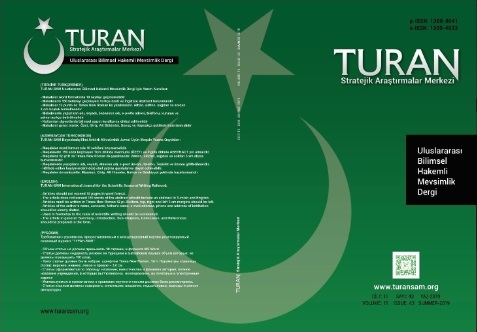HIRİSTİYAN TESLİSİ İLE HİNT TRİMURTİSİNİN KARŞILAŞTIRMALI OLARAK DEĞERLENDİRİLMESİ
A COMPARATIVE EVALUATION OF CHRISTIAN AND INDIAN TRINITIES
Author(s): Dönüş SaritaşSubject(s): Christian Theology and Religion, East Asian Philosophy, Indian Philosophy, Philosophy of Religion, Sociology of Religion
Published by: Sage Yayınları
Keywords: Trinity; Monotheism; Jesus Christ; Brahma; Shiva; Vishnu;
Summary/Abstract: In this study the concept of trinity, father, son and holy spirit, which are considered as Three Elements of Christianity, will be compared with “Brahma, Shiva and Vishnu”, the Indian Trinity, which co-symbolizes the Christian Trinity and the Pantheon of Hinduism. Trinity means trilogy. Accordingly, in the Christian faith Jesus Christ is a God. He was born without a father. Trinity of God means that Jesus and the Spirit are Incorporated in the same person. According to the Indian Trimurtis, Brahma, Shiva and Vishnu are the holy trinity of God. These three coexist with three heads in one body and form one God. Brahma signifies the so-called creator, Vishnu the protector and Shiva the destroying power. According to this understanding, Manu is a man just like Jesus Christ, and it is God Brahma who created him. God Vishnu descended to the earth in order to teach people how an exemplary person should be. This politheistic belief in incarnation is called “Avatara.. In this study, these two beliefs and cultures will be compared, in particular, the Trinity Concept. However, the disagreement between a single God which cannot be considered higher than himself and the incarnation of more than one God in the same body will be discussed. The similarities and differences between Christian and Indian Trinity will be manifested. This problem will be explained within the framework of the concepts that make up the dynamics of these approaches. In addition, in order to clarify the subject, monotheism in general, in particular the concept of monotheism in Islam, will be clarified to make ambiguous points comprehensible by comparing with the Trilogy.
Journal: TURAN-SAM
- Issue Year: 11/2019
- Issue No: 43
- Page Range: 245-261
- Page Count: 17
- Language: Turkish

